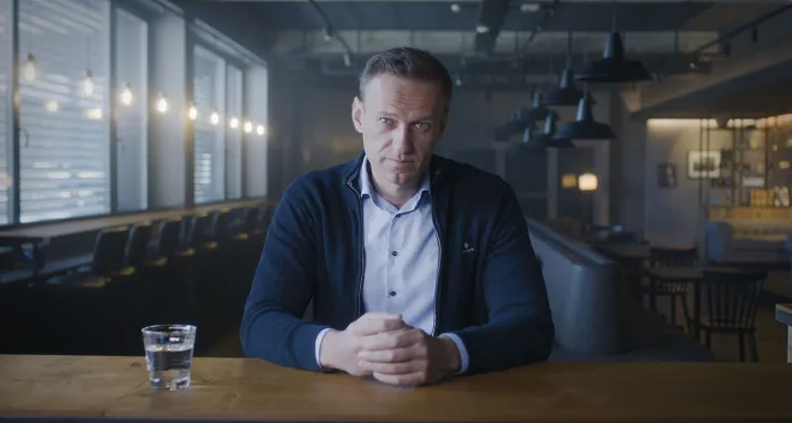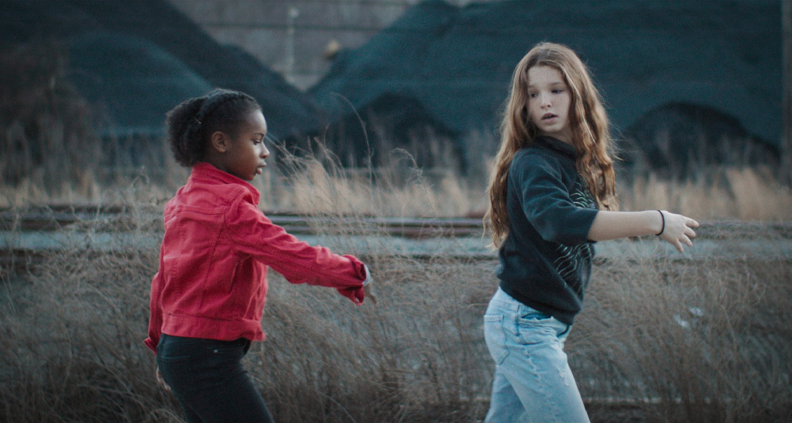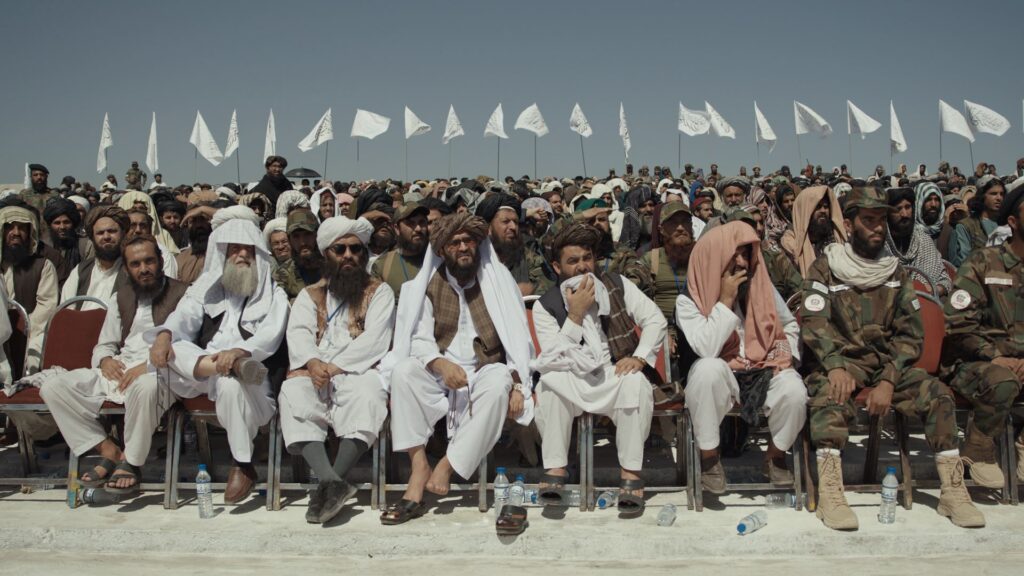Member Lens: Diane Becker on the Passion and Chaos of Documentary Production
Our ongoing Member Lens feature spotlights current Film Independent Members to see how they got started, where they are now and what being part of Film Independent means to them. This month: producer Diane Becker.
***
Film Independent Member Diane Becker has always had non-fiction in her blood. The Academy Award winning producer of Navalny started off going to school for photojournalism, ended up working for big news networks, but couldn’t help but think that going into film was what she needed to do.
After graduating from AFI, she was exposed to the world of documentary filmmaking, and found that it was a collision of two worlds she loved. Now she has produced films like King Coal, Stutz, the Netflix docuseries The Program: Cons Cults and Kidnapping, and Blink, which is premiering this fall for National Geographic.
We spoke with her earlier this month about the high-highs and low-lows of making a movie without a script.

Hi, Diane. Thank you for taking the time to talk to me.
I want to start with your background. Where are you from and what were a few of the things that drew you to film in the first place?
I am originally from Massachusetts. I grew up between Worcester and Boston. I’m from a small town in New England and dreaming of a film career is not really the thing you do, but I fell in love with watching movies and the power of cinema when I was a kid.
I think Star Wars was the first live action film I ever saw. I was completely blown away by the storytelling – and Carrie Fisher. Seeing films gave me access to exploring worlds and emotions that were so outside the realm of how I grew up, and I was obsessed with seeing them – and talking about them. I went to RIT for undergrad in Rochester, New York, and I studied photography and photojournalism, but I used to hang out with all the film kids at the cage. I spent alot of my free time helping them and I knew I wanted to work in film one day, but didn’t understand totally what that meant.
After college I spent ten years in New York and I worked for a number of media companies. I worked at ABC television at the beginning of the emergence of AOL and the internet and basically earned a graduate degree designing websites and digital press kits. My time at ABC also gave me an inside look into the entertainment world a little bit. One of my closest friends that I worked there was Eugene Hernandez, who started IndieWire with a handful of our friends and we all used to go to Sundance every year and created a kind of school newsletter in the early days reporting on the festival. I loved seeing new filmmakers careers launch and would be so inspired dreaming that someday maybe I’d figure it out. It’ s so wild that now he is the Festival Director at Sundance – it’s such a full circle moment.
And then in 2001, two weeks before 9/11, I left New York City and I moved to LA. I moved because I knew I was working really hard. And I thought, well, if I’m going to work this hard, I should try to do what I really want to do with my life, which is make movies.
I just figured if I came to L.A., I would figure it out somehow. But then 9/11 happened, and through a series of missteps and redirections, I decided that grad school might be useful for me in gaining direct experience and contacts. I decided to study producing at AFI. and I graduated during the time of the last writers’ strike, which made trying to get an independent film career off the ground very difficult.

It was a really hard time and I got a job running the production office for a documentary film director who was moving back to the States. I had no idea that job would change the trajectory of my career and my life in many ways. But making Sergio was an incredible experience and opportunity which began a decade long collaboration with director Greg Barker, and his producers John Battsek (Ventureland) and Julie Goldman (Motto Pictures) who are two of the most prolific producers working in the documentary space today. They all taught me so much but that experience cemented my lifelong mantra for my career: “it’s the people, and the project” The film ultimately premiered at Sundance and was shortlisted for an Oscar.
It doesn’t matter whether it’s fiction or nonfiction, to me it’s all storytellings – we just approach it from different angles and points of view. I have always wanted to work in both mediums. I have produced a couple of scripted films, but I have had so much creative opportunity making amazing films in the documentary world. I realized my background is in photojournalism And documentary filmmaking is basically modern-day photojournalism, so it’s not a surprise that I, in many ways, stuck around and have made most of my career in the documentary space.
It seems like you always had kind of an interest in the nonfiction world and like telling true stories. And then you found that documentary was like the avenue to do that. That worked for you.
Yeah, it kind of collided. Both of these worlds that I loved.
Yeah, that makes a lot of sense. I wanted to ask you, what is it about producing documentaries that you enjoy, and on the flip side, what are some of the struggles of that?
The joy and the struggle are kind of sometimes one in the same, right? I think for me, what I love most about producing in the documentary space is that it’s a very challenging but intensely creative job. There is no script. You are in a constant state of pivoting, and in a constant state of having to adjust your expectations, or think outside the box, or stretch money further than you think you will.
You think you’re following a story in one direction and suddenly it goes wildly off course in another. So no two days are ever the same. I actually really enjoy that. It’s also the super challenging part of it too, right? It can be incredibly exhausting to have to be in a constant state of flux when your brain trying to think outside the box.
Making films is hard enough even when you have a budget, a schedule, a deadline, and a clear sense of direction. What we do is difficult regardless. Having those constant variables can be super challenging or invigorating – depending on the day.
That’s true. I have a background as an editor. With the documentary stuff that I’ve worked on, the show goes in one direction, and then you get notes, or something changes with the people you’re following, and then you basically have to rebuild the thing from scratch.
And it’s madness. But that’s also part of the fun. It’s such gift to tell these stories about real things that are happening in the world, about people that are living on the planet, it’s very gratifying and inspiring to be part of that. Storytelling changes the world. It does.
Having the opportunity to either observe people, or work with people, or meet those kinds of people who are really trying to make change in the world is, I think, really one of the most gratifying things for sure.
Yeah, exactly. I’m really excited to see Hollywoodgate. Can you tell me about the struggles of doing something in Afghanistan with the Taliban and the complications of that.
Director Ibrahim Nash’at worked with so few resources and so little connection to the outside world when he was filming. He negotiated the access for himself and put his life at risk every time he would embed with them. It was a very small footprint, little communication, and him just bearing witness with his camera, getting that access and getting out safely. The struggle with doing films like this is keeping the director and anyone else on the team safe when you don’t have alot of safeguards. Every situation is different and it’s a constant reassessment of what’s possible and what’s best not only for the film but also for the mental and physical safety of the crew.

When did you first become aware of Film Independent, and what interested you about Film Independent when you first joined?
Oh, my God, I don’t even remember when I first joined. It’s been almost 20 years I would imagine. I knew about Film Independent when I was in New York and working at IndieWire and it’s sort of, the minute you’re interested in independent film in any way, shape or form, you know about Film Independent, period.
Like if you’re someone who is remotely serious about the work and the industry. I’ve, for whatever reason, I’ve always known about Film Independent.
It’s an institiution.
Yeah, it’s totally an institution. And, you know, it’s also an organization that supports upcoming filmmakers and the development of talent across mulitple disciplines, and all of that. And so being part of that community, and the kind of programs that you run is absolutely vital.
What is your favorite part about being a member?
I think for me, it’s getting the opportunity to meet people that work in the industry and people that want to work in the industry. You go to some of these events and you get to interact with young filmmakers who kind of remind me of a younger version of me, many are at some point dreaming about working in the film industry in some way, shape or form or maybe not understanding how to do that.
Sometimes the only way to figure out how to do that is to be around other people who are doing it, and it’s just hearing the stories of how people come to their careers. Demystifying it and understanding that everyone’s path is unique to them and their goals.
I think is really inspiring because no two stories are ever the same.
I know, and that’s one of the things that I love about doing these interviews. I get to talk to a lot of people and get hear so many of those stories. So thank you for taking the time and I really enjoyed it.
Film Independent promotes unique independent voices by helping filmmakers create and advance new work. To become a Member of Film Independent, just click here. To support us with a donation, click here.
More Film Independent…